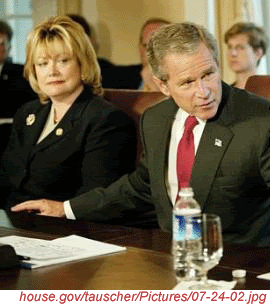(This may not satisfy Katie Merrill’s demand that the netroots only do what she says, but as with everything online it is a great way to bring together people who want to work together on this. – promoted by blogswarm)
I want to introduce Democrats Work, an organization dedicated to mobilizing grassroots Democrats to perform community service projects . . . as Democrats. I also want to invite anyone in the Bay Area to two upcoming service events, which are also listed on the Upcoming Events section on Calitics. Could be a free Democrats Work t-shirt in it for you!
The “big idea” behind Democrats Work, which I co-founded and am now the executive director of, is our belief that we need to build a service-based approach to politics. Let’s take the energy and enthusiasm we have around election time and use it to make positive contributions in our communities all year long. Let’s do tangible things – clean up parks, paint schools, sponosor basketball tournaments, help at neighborhood rec centers – that people can point to and say: “The Democrats did that for this community.”
How does Democrats Work fit in? We are working to connect Democratic volunteers with visible, tangible service projects in their communities. We partner with Democratic and progressive organizations – including local clubs, state and county parties, and local chapters of national organizations, campaigns and elected officials – to get their members and supporters to volunteer for local service projects as part of a Democrat-branded “Work Crew.” Basically, we are building a sustainable infrastructure to keep Democratic volunteers and supporters visible and active during the “off season.”
As for the “big idea,” what could a service-based approach mean for our country and our party?
First, we simply do some good in our communties. By making tangible contributions and increasing the visibility of Democrats at the local level, we show our neighbors that Democrats get things done. When there is a need in a community, we want people to say, “Call the Democrats, they always have people who can help.” Second, we engage the grassroots during non-election time to keep folks active and involved. Instead of asking people to get involved every two or four years, we tap into that energy year-round and keep the band together. Third, we reach out to people who might not otherwise get involved in purely “political” activities, but share our values. Not everyone wants to hand out campaign literature or phone bank or even wants to work for a particular candidate, but they are willing to paint a school or clean up a park with their friends. And, fourth, we build a unified stable of motivated and easily mobilized volunteers who can help candidates win elections.
Check it out. Send me your thoughts. Let’s put our values into action by doing some good in our neighborhoods.

